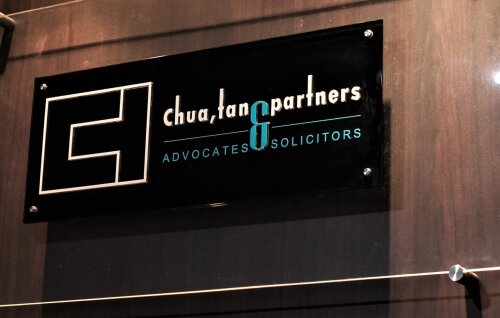Best Debt Capital Markets Lawyers in Kuala Lumpur
Share your needs with us, get contacted by law firms.
Free. Takes 2 min.
List of the best lawyers in Kuala Lumpur, Malaysia
About Debt Capital Markets Law in Kuala Lumpur, Malaysia
Debt Capital Markets (DCM) involve the raising of funds by governments, financial institutions, and corporations through the issuance of debt instruments such as bonds, notes, and sukuk (Islamic bonds). Kuala Lumpur, as the capital city of Malaysia, is recognized as a hub for both conventional and Islamic debt capital market activities in Southeast Asia. The Malaysian DCM sector is governed by a robust regulatory framework that promotes transparency, investor protection, and financial innovation, making it attractive to both domestic and international issuers and investors. Activities in this area often involve complex legal, regulatory, and compliance considerations.
Why You May Need a Lawyer
Engaging in Debt Capital Markets transactions can involve complex structuring, documentation, regulatory compliance, and cross-border issues. You may require a legal expert if you are:
- Issuing bonds, sukuk, or other debt instruments in Malaysia or abroad
- Investing in Malaysian debt capital products
- Seeking to ensure compliance with Securities Commission Malaysia (SC) laws and regulations
- Dealing with disclosure requirements and regulatory filings
- Looking to understand your rights and obligations as an issuer or investor
- Negotiating terms with underwriters, trustees, or facility agents
- Handling restructuring, refinancing, or redemption of debt instruments
- Entering or exiting the Malaysian market as a foreign entity
Legal advice ensures your interests are protected, all regulations are met, and the risks associated with DCM transactions are managed appropriately.
Local Laws Overview
Debt Capital Markets in Malaysia are primarily regulated by the Securities Commission Malaysia (SC) under the Capital Markets and Services Act 2007 (CMSA). Issuance of bonds and sukuk is subject to requirements set by the SC, Bank Negara Malaysia (BNM), and other relevant regulators. Key aspects include:
- Approval and Registration: Most public offerings of debt securities require SC approval.
- Disclosure Requirements: Transparency is emphasized through prospectus requirements and continuous obligations.
- Islamic Capital Markets: Malaysia is a global leader in sukuk issuance. Shariah compliance is supervised by SC's Shariah Advisory Council.
- Currency Controls: Foreign exchange administration rules by BNM may be relevant for cross-border issuances.
- Trust Deed and Trustees: Trustees must be appointed for certain issues to hold assets and ensure compliance.
- Secondary Trading: Debt securities may be listed and traded on Bursa Malaysia or other recognized markets.
- Taxation: There are tax incentives for certain DCM activities, including stamp duty and withholding tax exemptions for qualifying bonds and sukuk.
Frequently Asked Questions
What is a Debt Capital Market transaction?
A Debt Capital Market transaction involves the issuance, trading, or investment in fixed income securities such as bonds, notes, or sukuk to raise funds or invest capital.
Who regulates Debt Capital Markets in Kuala Lumpur?
The principal regulator is the Securities Commission Malaysia, with Bank Negara Malaysia having regulatory oversight in respect to currency and some financial institutions.
What is the difference between a bond and a sukuk?
A bond is a conventional debt instrument with regular interest payments. A sukuk is a Shariah-compliant debt certificate where returns are generated from underlying assets and structured to comply with Islamic law.
Do I need regulatory approval to issue bonds in Malaysia?
Most public offers require approval from the Securities Commission Malaysia. Certain private placements may be exempt but must still adhere to specific regulations.
Can foreign companies issue bonds or sukuk in Malaysia?
Yes, subject to meeting regulatory requirements and obtaining relevant approvals. There are also specific guidelines for foreign issuer qualification.
What are the disclosure obligations for issuers?
Issuers must provide a prospectus and ongoing disclosures covering financials, material changes, and compliance with listing or issuance rules.
How is investor protection ensured in DCM transactions?
Through robust disclosure requirements, appointment of trustees, regulatory oversight, and enforcement actions against breaches.
What legal risks should I be aware of in DCM transactions?
Risks include non-compliance, misrepresentation, cross-border legal conflicts, and enforcement of rights in insolvency or restructuring scenarios.
Are there specific rules for Islamic debt capital market instruments?
Yes, Islamic debt instruments such as sukuk must comply with Shariah principles, and are subject to oversight by the Shariah Advisory Council of the SC.
How can I choose the right law firm for DCM legal advice in Kuala Lumpur?
Look for firms with a dedicated capital markets team, experience in both Islamic and conventional markets, and a track record in handling DCM transactions.
Additional Resources
Some helpful organizations and resources in Malaysia for Debt Capital Markets include:
- Securities Commission Malaysia (SC) - principal regulator of DCM
- Bank Negara Malaysia (BNM) - central bank and foreign exchange administrator
- Ministry of Finance Malaysia - issuer and overseer of government securities
- Bursa Malaysia - marketplace for listing and trading debt securities
- Malaysian Investment Banking Association (MIBA)
- Malaysian Legal Directory or Bar Council for accredited law firms
Next Steps
If you need legal assistance regarding Debt Capital Markets in Kuala Lumpur, here is how you can proceed:
- Identify your objectives and prepare relevant documents describing your situation or transaction.
- Reach out to a law firm or legal specialist with experience in capital markets, particularly those with expertise in both conventional and Islamic finance law.
- Request an initial consultation to discuss your legal needs, regulatory concerns, and transaction structure.
- Seek clarification on fees, timelines, and scope of work before formally engaging legal counsel.
- If you are a foreign party, ensure your legal team is familiar with cross-border structures and Malaysian regulatory requirements.
- Keep records of your communications and agreements for future reference and compliance needs.
Engaging a qualified lawyer at an early stage can help avoid costly mistakes, ensure smooth execution, and protect your interests throughout the DCM process in Kuala Lumpur, Malaysia.
Lawzana helps you find the best lawyers and law firms in Kuala Lumpur through a curated and pre-screened list of qualified legal professionals. Our platform offers rankings and detailed profiles of attorneys and law firms, allowing you to compare based on practice areas, including Debt Capital Markets, experience, and client feedback.
Each profile includes a description of the firm's areas of practice, client reviews, team members and partners, year of establishment, spoken languages, office locations, contact information, social media presence, and any published articles or resources. Most firms on our platform speak English and are experienced in both local and international legal matters.
Get a quote from top-rated law firms in Kuala Lumpur, Malaysia — quickly, securely, and without unnecessary hassle.
Disclaimer:
The information provided on this page is for general informational purposes only and does not constitute legal advice. While we strive to ensure the accuracy and relevance of the content, legal information may change over time, and interpretations of the law can vary. You should always consult with a qualified legal professional for advice specific to your situation.
We disclaim all liability for actions taken or not taken based on the content of this page. If you believe any information is incorrect or outdated, please contact us, and we will review and update it where appropriate.

















